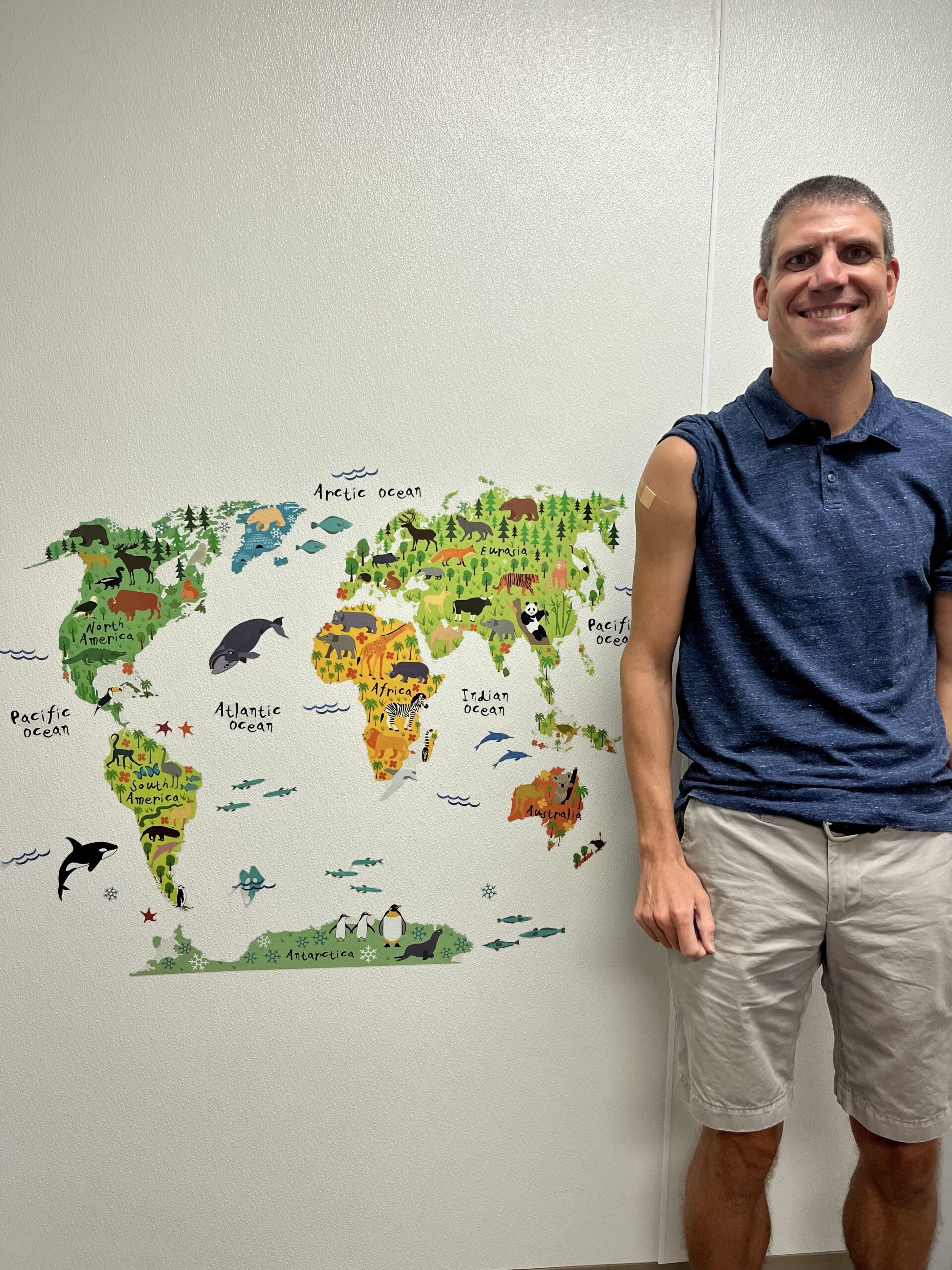We are getting ready to embark on something that we have never done before – extended travel on two different continents in the same trip across seven countries. Aside from a day trip to Tangier, Morocco from Gibraltar, this will be our first time in Africa. And, it requires a few extra steps for preparation than our other travels have.
Last Friday, we visited the ADC Travel Clinic for the first time. We had an extended consultation with a nurse to review our travel itinerary and to receive recommended vaccines based on where we are going. I received the following shots: Hepatitis A (valid for 1 year with a single dose; extended for 30+ years after a second dose); Tetanus/Diptheria/Pertussis (valid for 10 years); Typhoid (injection is valid for 2 years – Kurt opted for oral administration of this immunization, which is valid for 5 years). I already had the Hepatitis B immunization completed from back in my days of working in hospital settings, and it is effective for a lifetime after completion of the 3-shot series. We received our “yellow cards,” which are the International Certificate of Vaccination or Prophylaxis.
In addition to receiving immunizations, we also obtained prescriptions for anti-malaria medication and an antibiotic to be used in case of persistent GI distress. Of the available anti-malaria medications, our provider recommended Malarone (even though other travelers I know had recommended Doxycycline). She was in favor of Malarone for us because Doxycycline can cause photosensitivity (which wouldn’t be good given that we will be outside for so much of our time there) and because Doxycycline has to be taken for 4 weeks after leaving the region (compared to 1 week after leaving for Malarone). We’ll report back on how it goes in terms of potential medication side effects.
As part of the country-specific information that we were provided, I learned that Zambia considers certain medications that contain diphenhydramine (found in Benadryl and other combo nighttime sleep aids/pain relievers) to be controlled substances. So, I double-checked with my sister-in-law, who is a pharmacist, to ensure that any OTC and prescription medications that we are transporting do not contain it.

Another helpful piece of information that I would have otherwise been unaware of is that individuals with thyroid problems should not use iodine for water purification. Since I fall into that category, I reached out to my endocrinologist to inquire what I should do. She indicated that my current medication regimen should provide some protection from any negative effects. Individuals with hyperthyroidism may also be more affected than those with hypothyroidism (me). So, given the risk-benefit analysis, she said it’s better for me to drink purified water than not (and, we will check my thyroid levels when I get back).
Overall, this was a helpful consultation, and I am glad that we did it. While we were there, Kurt mused, Do you think she would be shocked to find out that we went to the jungles of Borneo and other parts of Southeast Asia without going through any of this?

